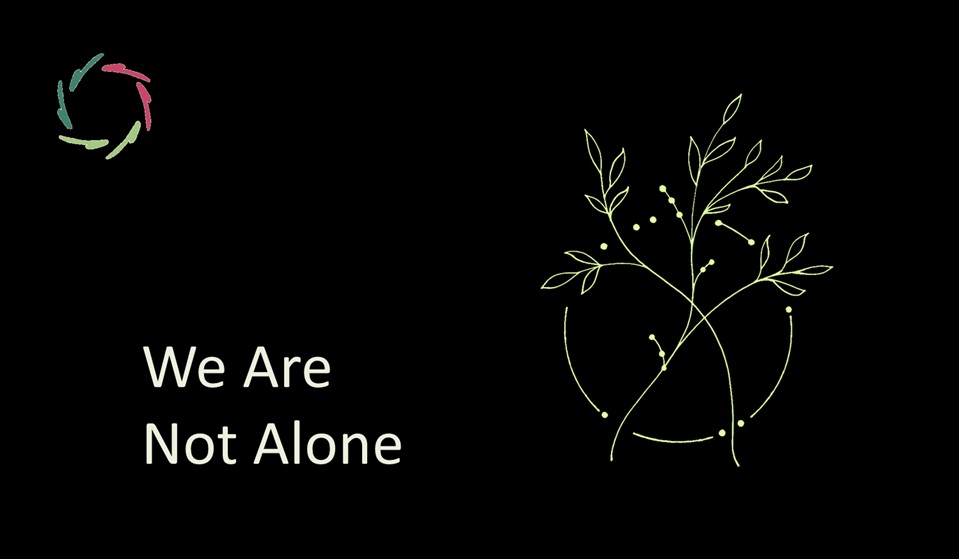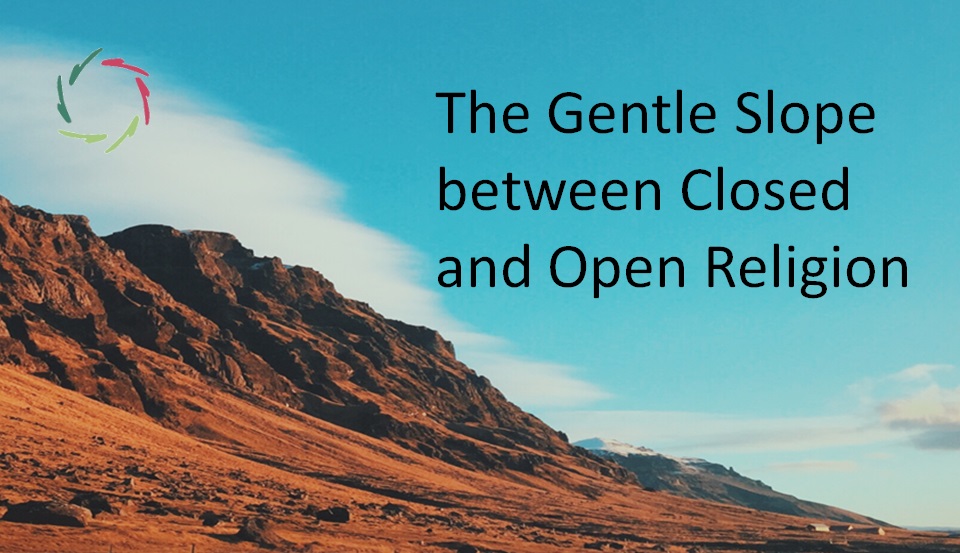We Are Not Alone

This may be the first reason why people are drawn to spirituality. The idea of being-not-alone can bring relief, whether in the form of a personal god or something more abstract. We may be creatures who wish to ‘be meaningful’ forever, yet we know we won’t. That’s hard to take. But if there’s someone – a presence, a certainty – we feel less alone in facing it.
Even without a personal god, spirituality can bring relief. It’s about feelings, not facts. A spiritual feeling often carries a sense of being accompanied. This is worth exploring. The feeling-not-alone doesn’t need to be an illusion or a crutch. It can be something profoundly real, more real than words can describe.
You can try it for yourself.
Let yourself drift into a spiritual feeling — whatever that means to you. Open yourself as much as possible. Do you sense a presence? Or does at least the sting of aloneness soften?
Presence beyond words
We often try to name what we feel. God. Energy. Love. Spirit. But does spiritual ‘presence’ need a label? Or does naming it create a distance, placing it into a mental category rather than allowing us to experience it fully?
Try this: say to yourself, “I feel God.” Repeat it a few times, gently. Then, after a few repetitions, drop the last word — simply say, “I feel…” as if you will complete the sentence but then let the sentence remain unfinished. Don’t fill in the gap. Just feel.
The moment you don’t need to name it, you might find yourself closer to it than ever before. This is not about losing faith. It is about stepping so close that words no longer stand in between.
What happens when we go beyond words? In a way, this is what Martin Buber meant in ‘I and Thou.’ A true Thou is met in full presence, not as a concept but as an experience. Maybe this is also what Jesus meant when he spoke of the kingdom of heaven being within.
The sky at night
Look up at the stars. They seem far away, but are they? We think in terms of distance, but what if presence is not about location at all?
Try this: find a quiet place and gaze at the night sky. Don’t think about how far the stars are. Instead, just be with them. Let go of the idea of ‘far’ or ‘near.’ Let presence simply be.
A step deeper: ask yourself, “Where do ‘I’ end and presence begin?” Maybe the sky is not an empty space at all but a vast intimacy waiting to be felt. At first, this may seem abstract. But if you return to it again and again, something might shift. We are not alone.
Could presence be something deeper than we assume?
Human presence
We search for the divine but often forget the deep presence of another human being. We talk, we interact, but how often do we truly meet?
Buber spoke of two ways of relating: I-It (where the other is an object) and I-Thou (where the other is met in full presence). The latter is rare, but when it happens, it is unmistakable.
Try this: sit with someone you trust ― in silence, without distraction. Look into his eyes, not to analyze, not to judge, but simply to be-with. If thoughts arise (“This feels strange”), let them pass. Stay present. See if something shifts.
Presence is not only found in silence but in how we connect.
Walking into presence
Walking is usually about going somewhere. But what if walking was the destination? What if each step brought you deeper into presence?
Try this: walk slowly. Then ― even slower. With each step, step into presence. Let yourself spontaneously slow down until you reach the moment where walking is no longer necessary. You can anticipate when this happens. Then, when you feel it is the right moment ― stop. Ask yourself, “Am I here”? If not, slowly walk more. If yes, simply be. You have arrived. You are not alone.
At that moment, there is no need to walk further. Presence is not something reached. It is simply where you are.
Does deep presence emerge through movement — or through stopping?
A gentle slope: the open invitation
This experience of presence does not require abandoning beliefs. It only requires openness. The deeper essence of religion is not found in rigid form but in a living presence that transcends form.
In Open Religion, the idea is not to throw away religious traditions but to let them open. A sacred text can be read not for its concepts but for the presence it evokes. A prayer can be spoken not as words but as an entry into deeper experience.
Try this: if you are part of a religion, go to a sacred space — a church, a mosque, a temple. Sit in silence. Open yourself not to an idea but to ‘presence’ itself. You are not rejecting your faith. You are standing more spiritually naked within it.
How do we move beyond rigid boundaries into depth?
Feeling presence vs. being presence
One final step. Up until now, we have explored feeling presence. But what if presence is not something you feel but something you are?
Try this: as you do any of the above-mentioned exercises, at some point, ask yourself:
Is presence something I experience, or is it simply what I am?
Let that question settle. There is no need for an answer. Maybe presence is not something outside of you, not even something ‘with’ you, but something inseparable from you.
If presence is not separate from us, what does that mean?
An open door
Presence is not a concept. It is an experience. And, like all experiences, it unfolds over time.
Try the exercises again. Each time, a different experience. Each time, ‘presence’ becomes more real. The door keeps opening.
We are never truly alone.


